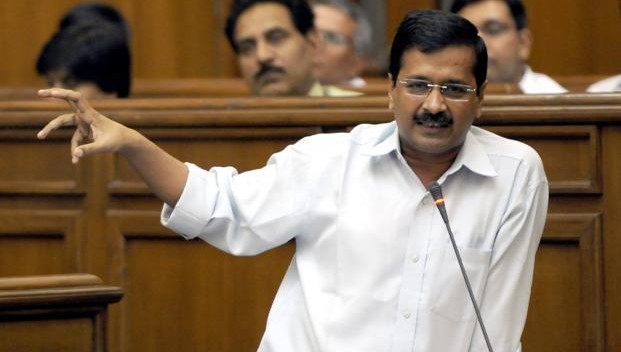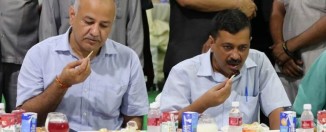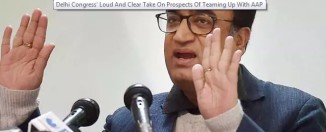Arvind Kejriwal shops for allies ahead of scaling his battle with the Centre
New Delhi: Having disrupted the Bharatiya Janata Party (BJP)’s string of victories with a humiliating defeat in Delhi, the Aam Aadmi Party (AAP) is now looking to build common cause with other state governments ahead of scaling up its confrontation with the union government.
Delhi chief minister Arvind Kejriwal proposes to reach out to his counterparts Mamata Banerjee of West Bengal, Nitish Kumar of Bihar and Akhilesh Yadav of Uttar Pradesh. Although none of them are afflicted by the problems that are peculiar to Delhi—the national capital is governed jointly by the state and union governments—Kejriwal is looking to turn his fight into a larger centre-state tussle.
Over the last few weeks the 100-day-old AAP government has been engaged in a simultaneous face-off with lieutenant governor of Delhi Najeeb Jung and the union government over jurisdiction, the matter has also spilled over to the courts with the Delhi High Court recently passing a ruling backing the union government.
Kejriwal’s hopes were raised after Banerjee waded in to the dispute within hours of the Delhi High Court ruling on 25 May.
“Too much interference in the federal structure is unacceptable. The state government is an elected body. Central government is also an elected body. Every elected body has its own jurisdiction. One must respect the other,” Banerjee tweeted. Delhi is a special state, where police, law and order and land fall under the union home ministry’s jurisdiction.
Significantly, all three states are due for assembly elections in the next two years. While the BJP is thought to be the frontrunner in Bihar and Uttar Pradesh, the party is trying to position itself as the principal rival to Banerjee’s Trinamool Congress (TMC) in West Bengal.
The turf war between the centre and the Delhi government broke after Jung made some senior bureaucratic appointments, including that of Shakuntala Gamlin, despite opposition from the state government. Kejriwal claimed Gamlin had previously tried to “trick” his government into signing documents to give more money to power distribution companies.
Matters came to a head after the union home ministry issued a notification backing the L-G. Chief minister Kejriwal responded by requesting an audience with the President and writing to the Prime Minister. Simultaneously, the Delhi assembly passed a resolution against the notification issued by the home ministry. The case is now being heard in the Delhi High Court.
While Banerjee has already spoken about Centre-state relations, the Janata Dal (United), which rules Bihar, and Samajwadi Party, the governing party in UP, have said that the issue can help flag their own demand for states to be given greater power in the federal structure.
“We are hopeful that something positive will come out of this situation. The centre-state debate has gone on for too long now and we hope that since this issue has become mainstream, some decisive policy is made and implemented,” Bashishth Narayan Singh, Rajya Sabha member of JDU and president of party’s Bihar unit, said.
“The attitude till now has been that the states have to depend on the centre for everything,” he added.
SP spokesperson Rajesh Dikshit said, “On the entire debate, we would always go for the fact that the elected government should be respected. However the situation here is different because Delhi is not fully a state and there are different provisions laid down to run it. Samajwadi Party would expect that an elected government’s views are taken into consideration.”
“Too much interference from the centre would hamper the running of the government,” he added.
In an address to the Delhi assembly on 27 May, Delhi chief minister Arvind Kejriwal said, “Whatever is happening in Delhi is dangerous. This is the Delhi experiment of the BJP-led centre. One by one, this experiment would be implemented in every non-BJP state. They want to take the country towards dictatorship. I appeal to all non-BJP chief ministers to come together and unite on this issue.”
Political analyst said the debate can have an effect in other states, especially those heading for elections.
“The issue which is arising right now may snowball. This kind of controversy risen in Delhi is going to affect the BJP’s prospects in states like Uttar Pradesh and Bihar. It can have an impact on the image of the party in these states,” said Sudhir Kumar, an Uttar Pradesh political analyst and reader in Political science in VBS university, Jaunpur and teaches political science at DAV PG College Azamgarh (UP).





